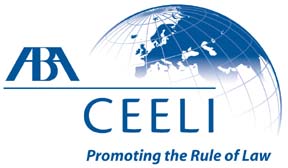 The CEDAW Assessment Tool
The CEDAW Assessment ToolIn 2002, CEELI developed the CEDAW Assessment Tool as a resource to measure the status of women through the lens of the Convention on the Elimination of all forms of Discrimination against Women (CEDAW). As of February 28, 2006, 181countries have ratified CEDAW, making it the second most ratified United Nations treaty.
The CEDAW Assessment Tool examines a nation's laws and measures the degree to which these laws protect the rights of women as mandated by CEDAW.
Designed to uncover the legal obstacles that frustrate the achievement of greater gender equality, the tool separately measures the degree to which women, in practice, are accorded the rights and status guaranteed to them under CEDAW. For this reason, a major focus of this assessment tool is on "real life" impediments to equality, many of which are not necessarily the product of poor or non-existent legislation. The assessment tool generates a wealth of information that is essential to comprehensive analysis of the status of women's rights in a country.
To date, CEELI has conducted the CEDAW Assessment Tool in Armenia, Georgia, Russia, and Serbia. An assessment using the tool is currently being conducted in Moldova.
The process of conducting the CEDAW Assessment Tool has proved to be an important capacity-building exercise for local nongovernmental organizations (NGOs). Additionally, the results of the CEDAW Assessment Tool have served as the basis for a constructive dialogue between the NGO community and governmental officials on concrete steps these two sectors can take to increase compliance with CEDAW, and, by doing so, improve the quality of women's lives.
For more information about the CEDAW Assessment Tool, contact Gender Issues Focal Area Co-Coordinators Michael Maya at <mmaya@abaceeli.org> and Jennifer Denton at <jdenton@abaceeli.org>.








